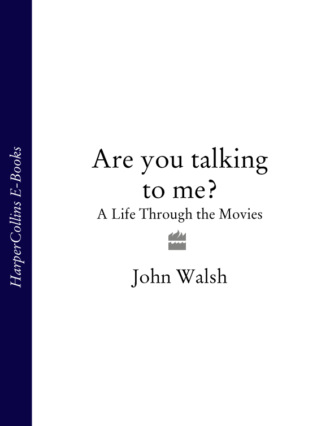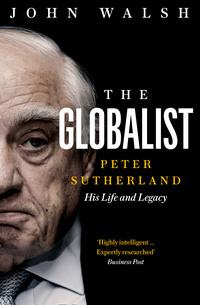
Полная версия
Are you talking to me?: A Life Through the Movies
What was going on in my mind that hijacked the real world at these moments, and substituted some vivid otherworld in its place?
It required only a little thought to realise that it was the movies I’d seen years before bobbing up to the surface as bits of a counter-life in my mind at moments of crisis, telling me how I should feel, or think, or talk or act. They offered an alternative to the life I was living and tried to persuade me I was someone else. It was a strange form of substitution because it made no sense. I’ve never known anyone called Ricco, and stopped invoking the name of the mother of God when I was fifteen. I’ve never owned a firearm and never cocked a real rifle, but when I tried to nail down what was going on in my head at these moments, I discovered I was a) quoting James Cagney in a forgotten gangster film, possibly The Roaring Twenties, and b) imitating the final walk-to-glory of William Holden and the last of his gang at the end of The Wild Bunch.
The fact that I could still display these behavioural tics many years after seeing the films made me wonder. Were they essentially nostalgic memories of movies I had once enjoyed? Or was something more profound going on – namely, that all my life I had been storing up images and dialogue and epiphanies from the movies that had come to mean more to me than my own true-life experiences?
Much of the time, we don’t realise the effect that films have on us. As we emerge from the cinema blinking into the lights of Soho, we are dragged back into the real world. Lots of movies slide off us, like mercury off a plate, leaving no trace behind. But sometimes, when it’s all worked out as the director planned, when we’ve seen everything we were supposed to see, have been strung out by the drama, dinned into submission by the galloping soundtrack, carpet-bombed by the special effects, made to laugh aloud or weep real tears, we make a connection with the screen that’s life-changingly powerful. Sometimes we find a narrative in which we unconsciously lose ourselves, mingling with the furniture, the props, the wide-shot landscape, the medium-shot high street, the close-up faces … It’s a quality of involvement of which only the cinema is capable, when, for a while, we borrow a life from somebody else. And from the array of on-screen characters and attitudes, small gestures, behaviour patterns, bits of dialogue, revelations of personality, we unconsciously select things that will affect our lives outside the cinema.
When we are young and silly and have no distinct personality with which to confront the world, we sometimes take a screen alter-ego home with us. The moment, for instance, in The Magnificent Seven when James Coburn is harassed by a bullying loudmouth into a gun-versus-knife duel was too good not to replicate in my bedroom the following day, where I confronted myself in the mirror of a chest of drawers, and flung my puny Boy Scout knife at the woodwork a couple of dozen times, replaying the scene until the blade started to become unhinged – not unlike Travis Bickle, the eponymous Taxi Driver in the Scorsese film, whose challenging monologue in front of his own bedroom mirror* gives this book its title and sums up many years of day-dreamy adolescent mimetics. But there’s a deeper form of identification that (no matter what your age) summons from your lower depths a more heroic form of the self that dumbly takes out the rubbish on Saturday morning and submits to insultingly brusque demands from the Inland Revenue. It’s the alternative counter-self that’s ridden along with Steve McQueen, smooched with Greta Garbo, been harangued by Jack Lemmon, spied on Janet Leigh in the shower, chased a small red PVC coat with Donald Sutherland or drowned alongside Holly Hunter at the end of The Piano. Sometimes, as we shall see, the shadow cast by this dim doppelganger can go on and on down the years …
The immediate spur to writing this book was a discovery one night in January 2001. It was 4 a.m. My consort, Carolyn, was away, staying with friends. The children were asleep at the top of the house. I woke up for no obvious reason – beyond the standard, middle-aged panic about money, mortgages, school fees, dwindling talent, thinning hair, dyspeptic twinges and terror of death – and lay on my back gazing at the ceiling. I couldn’t get back to sleep. But as time ticked by and the room gradually lightened, I slid into a state of semi-consciousness and, looking at the end of my ancient bed, saw a great black shape looming over me. But it wasn’t the figure of death, cowled, scythe-bearing and melancholy. It was just a solid black mass, a neutral rectangular object standing where no monolithic block had stood before, both alarming and obscurely comforting. As I lay half awake wondering what it could be, for some inexplicable reason the words ‘Where are we going now?’ ran through my head.
Then I switched on the light and and all became clear. The thing at the end of the bed was the doorway of my bedroom, backlit by the sleepy dawn light from the landing window. It was new to me because we had recently taken on a cleaner, and the usual collection of discarded shirts, trousers and manly impedimenta that had habitually hung over the brass struts at the end of the bed had been tidied away. I was seeing my own doorway for the first time in ages. Ridiculous, really. But in that sleepy disarray, I had conjured up something else.
It was, of course, the climactic scene of 2001: A Space Odyssey, in which Keir Dullea, playing Dave, the only surviving astronaut on the mission to Jupiter, wakes to find himself in what seems to be the bedroom of an eighteenth-century hotel. Kubrick fans will remember Dullea’s alarmed eyes inside his futuristic space helmet, his widened stare that reflected our own wild surmise of where-in-the-universe-have-we ended-up? In the film, Dave/Dullea walks about the elegant suite, discovers an older version of himself eating dinner at a spindly table, and ends up lying on an elegant bed. As he does, the black monolith, which has turned up throughout the movie as a cosmic emblem of progress and education, appears like a warning, or a threat, or a portal of discovery, whereupon the astronaut dies and is re-born as the Star Child, the master of the world.
I’d been stunned by Kubrick’s masterpiece when I saw it on a huge screen in 1968. Now, thirty-three years later, lying on a bed fretting about mortality in the dark watches of the night, I had conjured the film’s ambiguously alarming monolith to come and loom over me and take me somewhere (‘Where are we going now?’) more interesting.
I sat up and looked, as though for the first time, at the bed in which I was lying, an antique divan I’d picked up in the Eighties. It was, I realised, not a million miles from the one in the film. I looked around the room. An antique gentleman’s wardrobe that I’d bought in 1995 gaped open, self-consciously mimicking the one in the movie. I thought of the armchairs in yellow-gold brocade that I’d bought (I couldn’t have told you why) years ago for the sitting-room downstairs. And the threadbare Ottoman sofa. And the spindly-legged occasional tables that Carolyn had often tried to throw out because she couldn’t see any beauty in their false antiquity. And those heavy old hotel curtains I’d insisted on …
Could it be true? I went downstairs, switched on the light in the living-room and stared. Yes, it bloody well could. For years, I had unconsciously been furnishing my home to look like a simulacrum of the room in 2001: A Space Odyssey where an astronaut had fetched up thirty-odd years before, the room in which he was re-born into something infinitely grander than a mere Earthling. For years, it appeared, I had been patiently, unconsciously, nagging away at an image of transcendence in my head, one that had steered my taste in something as banal as furniture, and all to create a scene – actually in 2001 – where, at the end of your long journey, you don’t die after all.
It was such a shock that I began to wonder what other movies had sowed a corresponding seed, or how they had altered the course of my life when young. And gradually I began to isolate the films that had had a specifically moral, physical or psychological effect on me or had made me behave in peculiarly uncharacteristic ways.
Only a fool would admit that he or she has become a better person through their exposure to the cinema. It’s never been the natural home of great moralists. Sentimental film buffs still go to see D.W. Griffiths’s Birth of a Nation and emerge stunned by its casual racism, its black baddies and Ku Klux Klan heroes. But the cinema screen works an insidious magic on the emergent consciousness, and leaves us charged with feeling in ways that we only dimly understand. Unlike books or plays or TV programmes, the movies make you do weird stuff. And it’s this egregiously personal response to the key movies in your life that I try to explore in the ensuing chapters. I’ve included nothing I saw after I was twenty-one because it’s before that age that films imprint themselves on you most deeply; after twenty-one, your life is too hijacked by work, drink, sex, family demands and all the compromises you make with the Real World to be awestruck to the same degree by the plush curtains and the massive screen.
Perhaps my youth was mis-spent in darkened cinemas, when I might have been better employed reading Hegel or Gibbon or Proust, climbing Snowdon or Helvellyn with the Venture Scouts, travelling in the Sudan or the South China Seas, helping the sick with Mother Teresa. But the movies changed my life in the Sixties and early Seventies, and this is a celebration of that heady metamorphosis. And I cordially invite the reader to raid his or her own filmic image-bank and consider what flickering presences, what seductive scenes and passionate epiphanies, made them into the people they’ve become.
* J.G. Ballard, speculating about Hollywood’s influence on American attitudes to war, came up with a startling theory about movie-worship. ‘Any dream that so endures,’ he wrote, ‘must draw its strength from the deepest survival instincts. The potent spectacle of bright light playing against a high wall taps into something hardwired in our brains – memories, perhaps, of the first dawn.’
* Which goes, in its entirety: Yeah. Huh? (Pulls out gun.) Huh? Huh? Faster ’n you. Go fuck yourself. (Puts gun back in holster.) I saw you comin’, you fuck, shitheel. I’m standing here. You make the move. You make the move. It’s your move. (Pulls out gun again.) Huh. Try it, you … (Puts the gun away.) You talkin’ to me? You talkin’ to me? You talkin’ to me? Well who the hell else are you talkin’ …? You talkin’ to me? Well, I’m the only one here …
Конец ознакомительного фрагмента.
Текст предоставлен ООО «ЛитРес».
Прочитайте эту книгу целиком, купив полную легальную версию на ЛитРес.
Безопасно оплатить книгу можно банковской картой Visa, MasterCard, Maestro, со счета мобильного телефона, с платежного терминала, в салоне МТС или Связной, через PayPal, WebMoney, Яндекс.Деньги, QIWI Кошелек, бонусными картами или другим удобным Вам способом.




